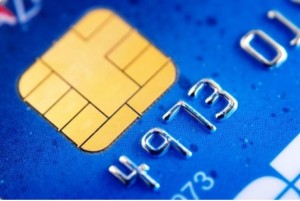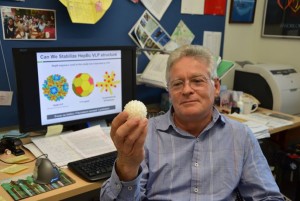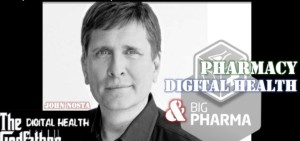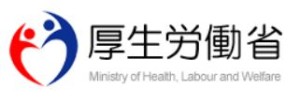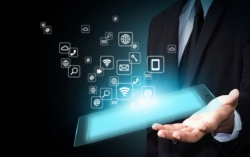- Meds to Beds Program Provides More Opportunities for Patient Counseling (pharmacytimes.com)
Mail, pizza, now medicine: Some health care systems are allowing patients to get their discharge medication delivered while they are still in the hospital… main focus was on patient education and medication counseling…the program allows for more quality time with patients to make sure their medications are safe and effective for them…"When we deliver medications to patients’ bedsides immediately prior to discharge, patients seem more willing to listen and learn about their medications than when they are at a retail pharmacy in the community,"
- EMV Chip Cards: What Pharmacies Need to Know (pharmacytimes.com)Credit and Debit Cards Lag on Upgrades -Half of Americans won’t get a chip-loaded card by the deadline. (bloomberg.com)
Independent pharmacies will want to consider updating their credit card processing terminals to accept EMV chip cards this fall…Named after their original developers (Europay, MasterCard, and Visa), EMV cards have a small, metallic square on the front of the card that serves as a microprocessor to store data securely, making the cards nearly impossible to counterfeit…starting October 1...the liability for credit card fraud will shift from banks to stores that are not EMV compliant…liability will shift to "whichever party is the least EMV-complaint in certain fraudulent transactions...
- Stanford team re-engineers virus to deliver therapies to cells (news.stanford.edu)
Researchers stripped a virus of its infectious machinery and turned its benign core into a delivery vehicle that can target sick cells while leaving healthy tissue alone….totally redesigned its core to repurpose its infectious capabilities into a safe vehicle for delivering vaccines and therapies directly where they are needed…"We call this a smart particle,"…. "We make it smart by adding molecular tags that act like addresses to send the therapeutic payload where we want it to go." Stanford has patented the technology and different aspects are licensed to a biotechnology company… no timetable for commercial development.
- Pharmacy, Digital Health, and Big-Pharma (pharmacypodcast.com)
John Nosta – Digital Health Philosopher, with Nosta Lab returns to the Pharmacy Podcast Show to discuss Pharmacy, Digital Health, and Big Pharma. (32:55 minutes)
- First liquid aspirin’ maker seeks licensing deal (in-pharmatechnologist.com)
Innovate Pharmaceuticals has launched…shelf-stable liquid aspirin, and says it is on the look-out for a licensing partner for the "$500m" market…. Innovate worked with chemicals company Croda for five years on engineering excipients to make what it calls a "truly liquid" aspirin. The pharma firm claims its product allows faster and more complete absorption than other delivery routes, "resulting in potentially drastic reductions in gastric side effects."
- Japan’s MHLW lines up about 50 candidates for fast-track ‘sakigake’ process (fiercepharmaasia.com)
Japan's Ministry of Health, Labour and Welfare received around 50 formal applications and has cleared screening for the "sakigake" fast-track drug and device review process before the Pharmaceuticals and Medical Devices Agency,… The "sakigake designation system" is aimed at expediting the review of innovative drugs, regenerative medicines and devices developed in Japan earlier than the rest of the world. This includes prioritized consultations and priority review status….products considered must display a novel mechanism of action, be scalable commercially, show high efficacy and be developed and planned for approval in Japan ahead of the rest of the world,…
- Telehealth portrays potential healthcare benefits (drugstorenews.com)
Telehealth represents a burgeoning,…opportunity for pharmacy operators, one that has the potential to not only drive traffic into a store, but also to drive new customers into that store…Pharmacy represents a…touchpoint for telehealth operators...making pharmacies that provide access to telehealth services a convenient and less-expensive option for those consumers who are assuming a greater portion of their individual healthcare costs…also an opportunity to improve outcomes through telehealth/retail pharmacy partnerships…many…doctor associations,…support telehealth models,..making retail pharmacy operators fielding in-store telehealth services attractive care partners for health systems.
- Beating parasites wins three scientists Nobel prize for medicine (reuters.com)
Three scientists…whose discoveries led to the development of potent new drugs against parasitic diseases…won the Nobel Prize for Medicine…Irish-born William Campbell and Japan's Satoshi Omura won half of the prize for discovering avermectin,…used to treat..river blindness and lymphatic filariasis...China's Tu Youyou was awarded the other half of the prize for discovering artemisinin, a drug that has slashed malaria deaths…She is China's first Nobel laureate in medicine.
- How many health apps actually matter? (healthcareitnews.com)
Apps are all the rage in healthcare and pretty much everywhere else. Despite so much buzz about consumers using mobile healthcare apps, however, the options proving useful are few and far between…With some 165,000 health-related apps available, in fact, a mere 36 comprise nearly 50 percent of downloads… Two key data points illustrate how almost all of the apps fall short: Just 10 percent can connect to a device or sensor while a mere 2 percent sync into providers' systems,...that functionality could greatly improve both accuracy and convenience of data collection.
- The bacteria-fighting super element that’s making a comeback in hospitals: copper (washingtonpost.com)
At least 15 hospitals across the country have installed, or are considering installing, copper components on "high-touch" surfaces easily contaminated with microbes — faucet handles on sinks, cabinet pulls, toilet levers, call buttons and IV poles…We’ve known for a long time that copper and other metals are effective in killing microbes,… Many experts have concluded that traditional methods for reducing hospital-acquired infections, such as hand washing, aren’t enough, because people don’t always do what they are supposed to do and many pathogens can survive for long periods on surfaces. That’s why hospitals are experimenting with other ways to destroy them…


